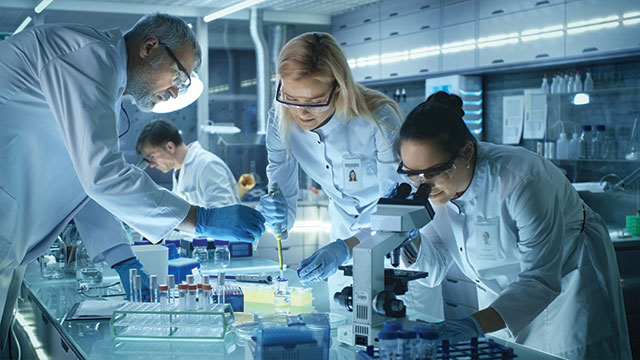
A laboratory is a place equipped for scientific research through experiments, measurements, and teaching. Laboratories are where drugs are manufactured and tested.
In the process, accidents always happen, and it’s advisable to take precautions.
Common laboratory accidents:
- Inhalation; there are procedures in place to smell stuff in the laboratory, but there should also be ventilation guidelines to make sure the smells will not affect you, and the gases in the laboratory should be measured to ensure they are not excessive.
- Explosions; explosions may happen when handling fire or mixing different chemicals. Learning about flammable chemicals and objects will help avoid explosions.
- Inhalation; during experiments, you are prone to inhaling gases that could be harmful and cause mild or severe effects—for example, headaches, migraines, nausea, or fainting. Ventilation goes a long way in ensuring that gases or fumes don’t accumulate in a room.
- Breaking and spillage; when in a rush, one could break equipment and cause spillage or cuts. It is advisable to follow steps as indicated and avoid swift movements. There should also be guidelines to make sure that in the event of spillage and breakage, the situation is handled appropriately.
- Skin contamination; washing your hands may sound like a cliche, but it helps. Hands should be cleaned before and after handling different substances, and protective clothing should be worn.
- Heat and chemical burns; some tools should be used when handling hot objects in the laboratory and chemicals. But in the event of a rush, you might forget to use them, which may lead to burns. It’s essential to learn cautiously and be attentive when handling chemicals and fire
Precautions to avoid the above accidents:
- When dealing with flammable and harmful chemicals, one should follow the laboratory instructions to ensure they are safe.
- Dress appropriately for the laboratory; when conducting experiments, one is exposed to different chemicals that may be harmful. laboratory protective clothing like gloves, lab coats, aprons, and glasses should be worn.
- Avoid eating and drinking; you could be easily tempted to carry food and drinks into the laboratory, but it’s strictly forbidden because they could get contaminated.
- Don’t taste or sniff chemicals
- Don’t mix chemicals without prior information; it may look attractive to mix random chemicals to see what happens but its essential to learn about the chemicals before mixing and conducting any experiments
- Handle laboratory waste appropriately; Laboratory waste should be safely and correctly disposed
- Do not carry experiments out of the laboratory; you might be tempted to take a pending investigation out of the laboratory and continue elsewhere. Without the safety of the laboratory equipment and clothing, accidents are prone to happen.
- Avoid experimenting on yourself; to successfully reach informed conclusions, experiments are normally tested on several subjects. However, there are procedures to go about it and not use yourself as a guinea pig.
- Learn about safety equipment and how to handle accidents; the first and most important lesson before entering and using a laboratory is safety. It’s essential to learn and remember what is taught and follow.

Comments are closed.